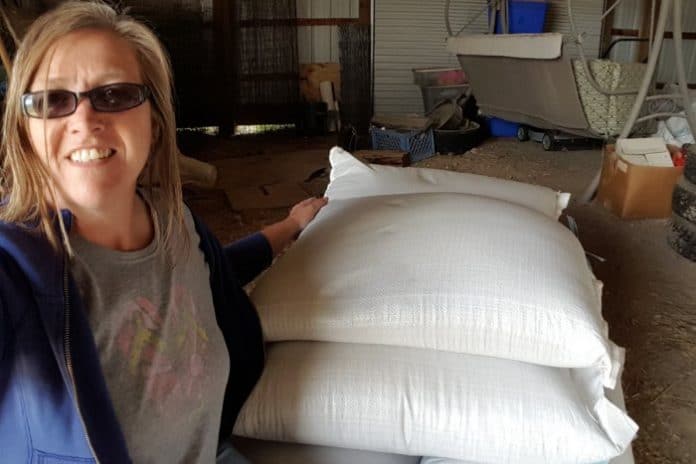Common sense has finally prevailed in the case of a Montana hemp farmer who took on the feds over access to water.
In June last year we reported on the plight of Kim Phillips, who was denied access to irrigation water for her hemp crop controlled by the federal Bureau of Reclamation. The Bureau said it prohibited the use of Reclamation water or facilities to facilitate activities prohibited by the Controlled Substances Act of 1970 (CSA). It was another case of industrial hemp being lumped in with its cousin, marijuana.
“My goal was to grow a small plot of hemp and use the hurd (woody core) for building hempcrete homes,” said Ms. Phillips on a fundraiser page that she probably now no longer needs. “But, in 2017 the Bureau of Reclamation denied me my legal right to use water from the local canal to irrigate my hemp crop. Sadly, I had to watch my entire 12ac crop dry up and die off.”
While industrial hemp isn’t as thirsty as some crops, it does require adequate moisture – and planting in that part of the world usually occurs during the warmer, drier months.
Ms. Philips didn’t give up and has spent the last year battling for her water rights. It appears her efforts have paid off.
The Seattle Times reports the Bureau of Reclamation has had a change of heart and Ms. Phillips has been provided contract to use federally controlled water for irrigation. It was just in the nick of time as Ms. Phillips needed to get the crop planted by the beginning of this month.
The Bureau said the crop she planned to plant this year meets an exemption in the 2014 Farm Bill that allows hemp to be grown under the auspices of a state agricultural pilot program for research.
Ms. Phillips had been preparing to file an injunction in Federal Court to let a judge decide and says she had support from both the Republican and Democratic Senators of Montana and Montana’s Department of Agriculture
Apparently even the Drug Enforcement Administration (DEA) went it to bat for her, telling the Bureau of Reclamation she was fully compliant and eligible for the water.
Industrial hemp is defined in federal and Montana statute as Cannabis sativa L. containing no more than 0.3% delta-9 tetrahydrocannabinol (THC) and is authorized as an alternative agricultural crop by the Montana Legislature.


